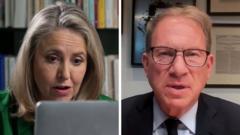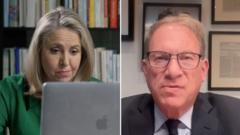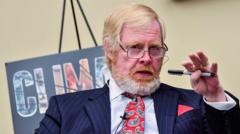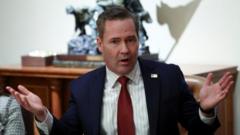The UNAIDS Executive Director has raised alarms over recent cuts to US funding for HIV aid, projecting a dramatic rise in infections and fatalities. With a potential five-fold increase in deaths within four years, the global progress made since 2004 risks reversal.
UNAIDS Warns of Catastrophic Impact from US HIV Aid Cuts
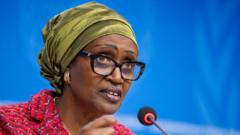
UNAIDS Warns of Catastrophic Impact from US HIV Aid Cuts
The UNAIDS chief depicts a dire future where US funding cuts could lead to thousands of new infections and millions of deaths from HIV.
US funding cuts pose grave threats to global health, warns UNAIDS chief, Winnie Byanyima, suggesting that these changes could lead to 2,000 new HIV cases daily and over six million deaths by 2027. Recent decades have seen a significant decline in HIV-related mortalities, dropping from more than two million in 2004 to 600,000 in 2023. However, the recent halt of foreign aid by the US government is jeopardizing these advancements.
Byanyima emphasized the urgent need for the US to restore these funds immediately, as vulnerable populations—particularly women and girls—face the brunt of the devastating consequences. The funding freeze was initiated by former President Donald Trump on his first day in office in January, intended to review overall government spending. Since then, numerous US-funded HIV programs have been terminated, exacerbating the already precarious state of health services in affected regions.
Health care facilities in Africa have faced crippling shutdowns due to the withdrawal of support, resulting in critical shortages of life-saving antiretroviral medicines. Byanyima expressed fears of regressing to the 1990s, a time marked by scarce medical resources and soaring HIV rates. She did thank the US for its historical generosity and urged a gradual reduction in funding rather than an abrupt cutoff.
Reports indicate that traditional European funding sources are also planning their reductions, and UNAIDS has yet to see any alternative funding commitments from other nations. The situation is alarming, as countries like Nigeria and Kenya are already on the brink of running out of essential HIV medication. The WHO has expressed concerns that the disruptions in treatment programs could undo two decades of progress against the epidemic.
Speaking from Geneva, Byanyima shared a poignant story of Juliana, a Kenyan HIV-positive woman whose employment depended on a US-sponsored program designed to aid new mothers in accessing treatment. With the suspension of this program, Juliana fears losing her own medical care required to protect her infant child from infection.
To counter the dire situation, Byanyima suggested a proposal to the Trump administration to market a new injectable ARV developed by US company Gilead, which could potentially benefit millions. The deal could simultaneously generate significant economic returns for the US, thereby strengthening the argument for maintaining necessary funding in the public health sector.
UNAIDS is not alone, as other UN agencies face funding deficits leading to potential job losses and setbacks in global health initiatives. The very foundation of global health progress could be threatened if the funding crisis is not addressed quickly and effectively.

